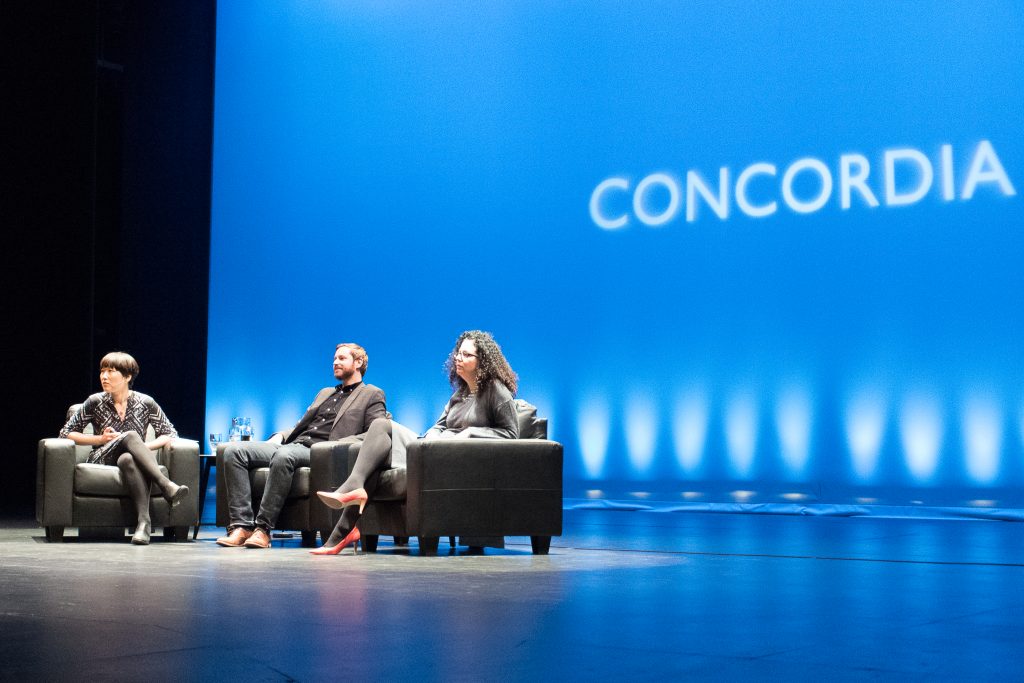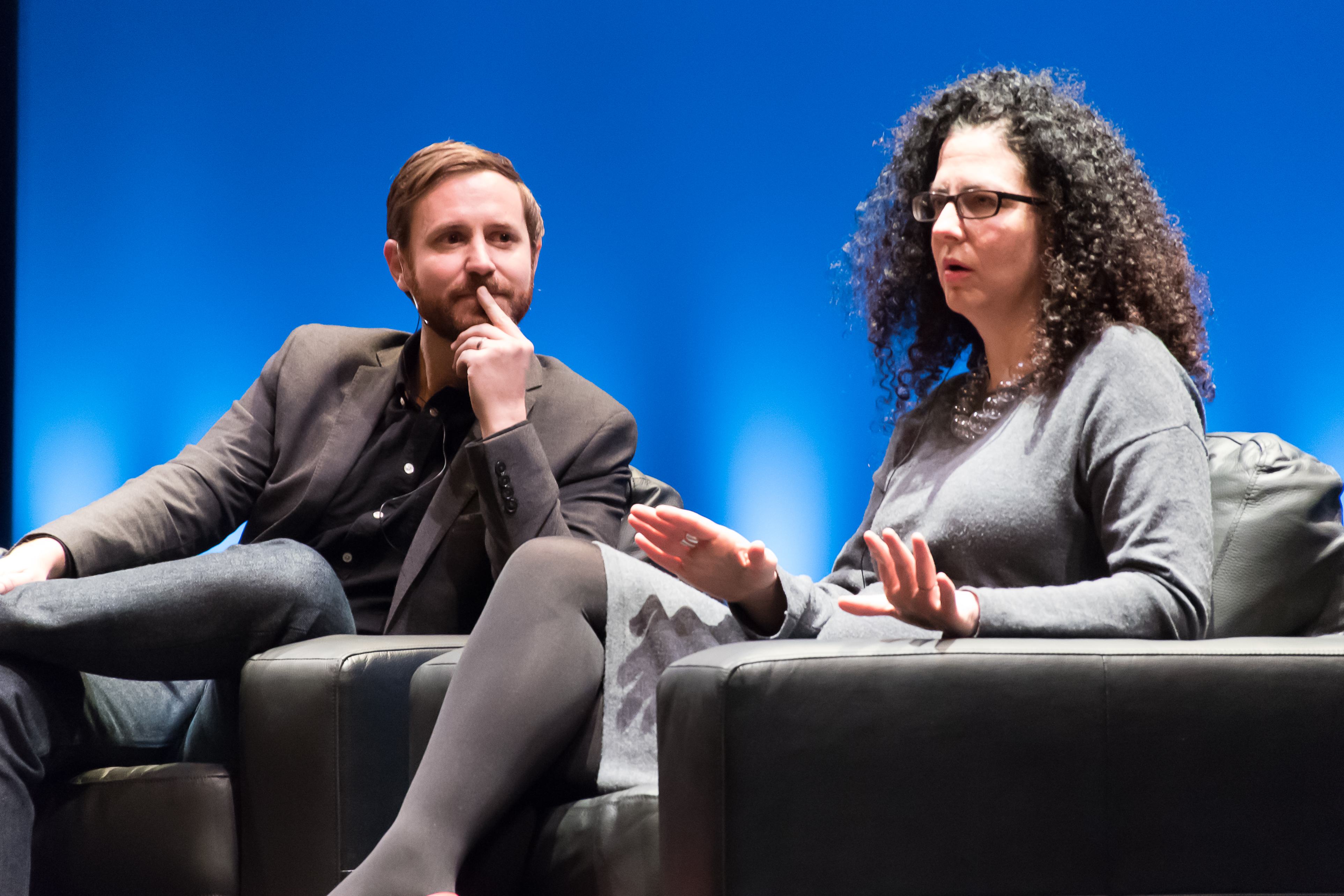Television critic Emily Nussbaum discusses television’s impact and the not-so-certain future of the small screen
When compared to films and novels, it’s easy to look at television as the lesser medium of storytelling. Yet, Pulitzer Prize-winning television critic Emily Nussbaum argued for the importance of television due to its longevity and ability to connect with audiences in ways that movies and books can’t. Nussbaum took part in the “Future Small Screen – Talking Television” conference, Concordia’s second Thinking Out Loud event of the year held in collaboration with the Globe and Mail.
“It’s frustrating to hear that a TV show is ‘like’ a great movie or novel. As if television series aren’t as artistically ambitious as movies,” said Nussbaum. “They are episodic, they span over a few years, they have specific genres, and they have a unique relationship with their audiences.”
Nussbaum mentioned one formative series in her career as a television critic—Buffy the Vampire Slayer. “I really developed a fanhood about it. It was sad to me that nobody was talking about Buffy with the same seriousness as something like The Sopranos,” she said. “We tend to overvalue TV shows that don’t look like TV shows.”
The conference, held at Concordia’s D.B. Clarke Theatre, also featured Concordia media professor Joshua Neves, who had a completely different view of the subject. Rather than looking at television as an art form, Neves focused on the ways television is used as a medium and how those methods reflect society.
“I’m interested in how television is used in other media, like in art galleries and museums or in films when someone is watching TV or a film—the idea of a box within a box,” Neves said.
It’s impossible to talk about the importance of television today without mentioning the emergence of streaming services, or the option to pause and rewind. These new additions have not only changed the way people watch TV but they have also changed the way TV shows are made, according to Nussbaum.
“TV is not the underdog anymore,” said Nussbaum. “It began as a mass-commercial form where everyone would sit around the TV with your family, and you consumed what was on the screen and then you forgot about it afterwards. Now, TV series are stories that are really happening.” While Nussbaum expressed her nostalgia for the television of her childhood—when everything was live and less cinematic—she acknowledged that, especially within the last five to seven years, there has been a significant change in television as a medium. Series are now made knowing that people will pause and rewind, whereas before they were made with the idea that they would be viewed live and only once. She added that it will continue to ebb and flow in the years to come.

Her biggest fear? “Self-driving cars, because then everyone will be watching TV all the time.”
Moderator—and Globe and Mail podcaster—Hannah Sung’s final question for Nussbaum and Neves was how they would describe the current state of television in the history books years from now.
“That’s if we make it through the next five years,” Nussbaum joked. She hesitated to answer the question, however, without bringing up the recent election of Donald Trump, who refuses to acknowledge climate change as a real issue. “[We] won’t get to describe television if we don’t make it through a global environmental crisis,” she said.
Nussbaum’s comments garnered several laughs from the audience, but most just nodded in somber agreement.
The conversation took a lighter turn during its final minutes when the audience members got the chance to ask questions. One member inquired about the everchanging fine line between film and television. Nussbaum gave a poignant answer:
“With movies and books, you make them or you write them and then you release them, and people see it and respond to it afterwards,” Nussbaum said. “But with television, you have more of a long-term relationship [with the audience] and the show changes in response to its audience.”
Nussbaum said the future will see more content creators star in their own shows, what she referred to as the “auteurist blend of creator and star” genre (see: Girls, Atlanta and the British dramedy Fleabag).
Should those shows be on cable networks or should seasons be released in full on Netflix? Nussbaum said that, while the latter is great for binge-watching, “Netflix makes television look more like film, and I think there’s a loss that happens in that.”
The aforementioned loss being that when episodes are released on a weekly basis, the wait between episodes allows more time for audiences to digest and discuss them. When a show’s season is released in full, the viewing experience becomes more singular and less about the community-feel viewers get when watching, or live-tweeting together.




